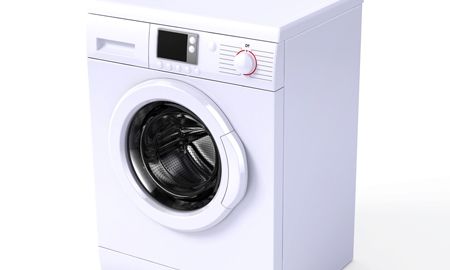Specialised in household electrical goods or ‘white goods’, such as refrigerators, cookers, cooking equipment and washing machines, ENIEM has two subsidiaries: EIMS, producing sanitary metallic products, such as bath tubs and shower heads, and FILAMP, an enterprise making lamps. ENIEM is in good shape economically, generating approximately 5 billion dinars (£42 million) turnover per year and employing 2,000 employees.
ENIEM benefits from a great reputation for quality products that are considered robust and long lasting. The brand has a leading position in the white goods market and is particularly well known for its refrigerators. Such assets could almost become a restraint on an international scale, considering that producing high-quality products in this highly competitive current market are expensive to produce and harder to sell with a profitable return on investment. In fact, for a lot of Algerians, buying a refrigerator is still considered a long-term investment and not a disposable one, as it is perceived in parts of Europe.
Nevertheless, as the Algerian market evolves, there is a need for new products, new designs and new product ranges. So ENIEM, in order not to miss out on growth opportunities, needs to build strong partnerships ties. This strategy has already been implemented successfully by DOMELEC, a subsidiary of ENIEM. The company has been producing PCs in conjunction with Microsoft and Intel for some years, collaborating on both a commercial and technological level, and gaining the benefit of its partners’ know-how, in terms of purchasing, product testing and marketing.
But what is really important for ENIEM is to optimise its existing production facilities. There is no point in building a factory to produce a new range of products if its own production units, which are still in good condition, are not used to their full capacity.
ENIEM has a strong industrial base and excellent know-how in spare parts production, assembly-line manufacturing, etc., so there is a lot to be done and the potential is huge. Its subsidiary EIMS, for example, is currently only selling 20,000 to 30,000 bathtubs, for a turnover of 257 billion dinars, which is very small, especially considering that the government plans to develop 2 million houses, so the potential for market expansion is enormous. It would also create opportunities for exports and ENIEM is already talking to some potentially suitable German and Asian partners in this direction
According to Ahmed Fettouhi, President of INDELEC, the group will aim to ensure that all of its production facilities operate at full capacity and will seek to take advantage of any subcontracting opportunities that arise.
Subcontracting is considered a very important part of ENIEM’s growth strategy, enabling the company, and ultimately the whole country, to reduce its import bill and to rebuild the Algerian industrial base. There is an array of parts that are currently being imported and could be produced locally by Algerian companies.
In order to maximise the subcontracting business, Algerian companies – both public and private – need to approach it on global scale and from a political and economic angle. Part of the Government Development Plan is that each sector invests in subcontracting and the crucial point is to avoid double investment to maximise synergies between companies.
Although the plan requires coordination and control, building an efficient subcontracting network could dramatically reduce the import bill. In fact, INDELEC as a group has already made significant savings of 120 million dinars through subcontracting initiatives by companies in its portfolio, such as ENIEM, ENIE (the reference in TV) or SONARIC. The goal is to develop an industry producing quality goods at low cost – taking advantage of low labour costs, with no tax on the salaries, low energy costs, and its proximity to Europe – as already exists in Turkey.
“Certainly, we have used our public procurement programme both as a tool for encouraging economic modernisation and as a means of reducing the tax burden. And so by this process, we have today developed a class of businesses which, in my opinion, are capable both of responding to domestic demand and also of competing in international markets,” says Algeria’s Finance Minister, Karim Djoudi.

0 COMMENTS